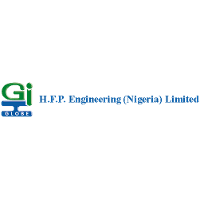Chinese technology giants, including Huawei and Baidu, along with several startups, are stockpiling high bandwidth memory semiconductors from Samsung Electronics in anticipation of impending U.S. export restrictions, Reuters reported.
These companies have significantly increased their purchases of these AI-capable semiconductors since early this year, leading to China accounting for approximately 30% of Samsung’s HBM chip revenue in the first half of 2024, one source reported.
This surge in stockpiling reflects China’s efforts to advance its technology sector amidst escalating trade tensions with the U.S. and other Western nations. It also highlights the impact of these tensions on the global semiconductor supply chain.
U.S. authorities are expected to announce a new export control package this month, which will introduce additional restrictions on semiconductor shipments to China, Reuters reported last week. The forthcoming package is anticipated to outline limits on access to high bandwidth memory chips.
The U.S. Department of Commerce declined to comment but stated last week that it is continuously evaluating national security threats and updating export controls to protect the U.S. technological ecosystem.
High bandwidth memory chips are critical for developing advanced processors, such as Nvidia’s graphics processing units used for generative AI tasks. The global supply of these chips is tight, especially for the most advanced HBM3E model, as there are only three major producers: South Korea’s SK Hynix and Samsung, and U.S.-based Micron Technology.
Chinese demand has predominantly focused on the HBM2E model, which is two generations behind the HBM3E. The global AI boom has exacerbated the supply shortage of the latest model. According to Nori Chiou, investment director at White Oak Capital Partners, China’s exceptional demand for Samsung’s HBM is due to its less mature domestic technology and the full booking of capacities by American AI companies.
Although the exact volume or value of stockpiled HBM chips in China is difficult to determine, various businesses, including satellite manufacturers and tech firms like Tencent, have been actively purchasing these chips. Sources indicated that chip design startup Haawking recently placed an order for HBM chips from Samsung, and Huawei has been using Samsung’s HBM2E semiconductors for its advanced Ascend AI chip.
Chinese companies have made some progress in producing HBM, with Huawei and memory chipmaker CXMT working on HBM2 chips, which lag three generations behind the HBM3E. However, new U.S. restrictions could affect these efforts.
The impact of these restrictions might be more significant for Samsung compared to its competitors, as Samsung relies more heavily on the Chinese market. In contrast, Micron has ceased selling its HBM products to China since last year, while SK Hynix, which counts Nvidia among its major customers, has focused on expanding HBM3E production and is already sold out for this year and nearly sold out for 2025.











